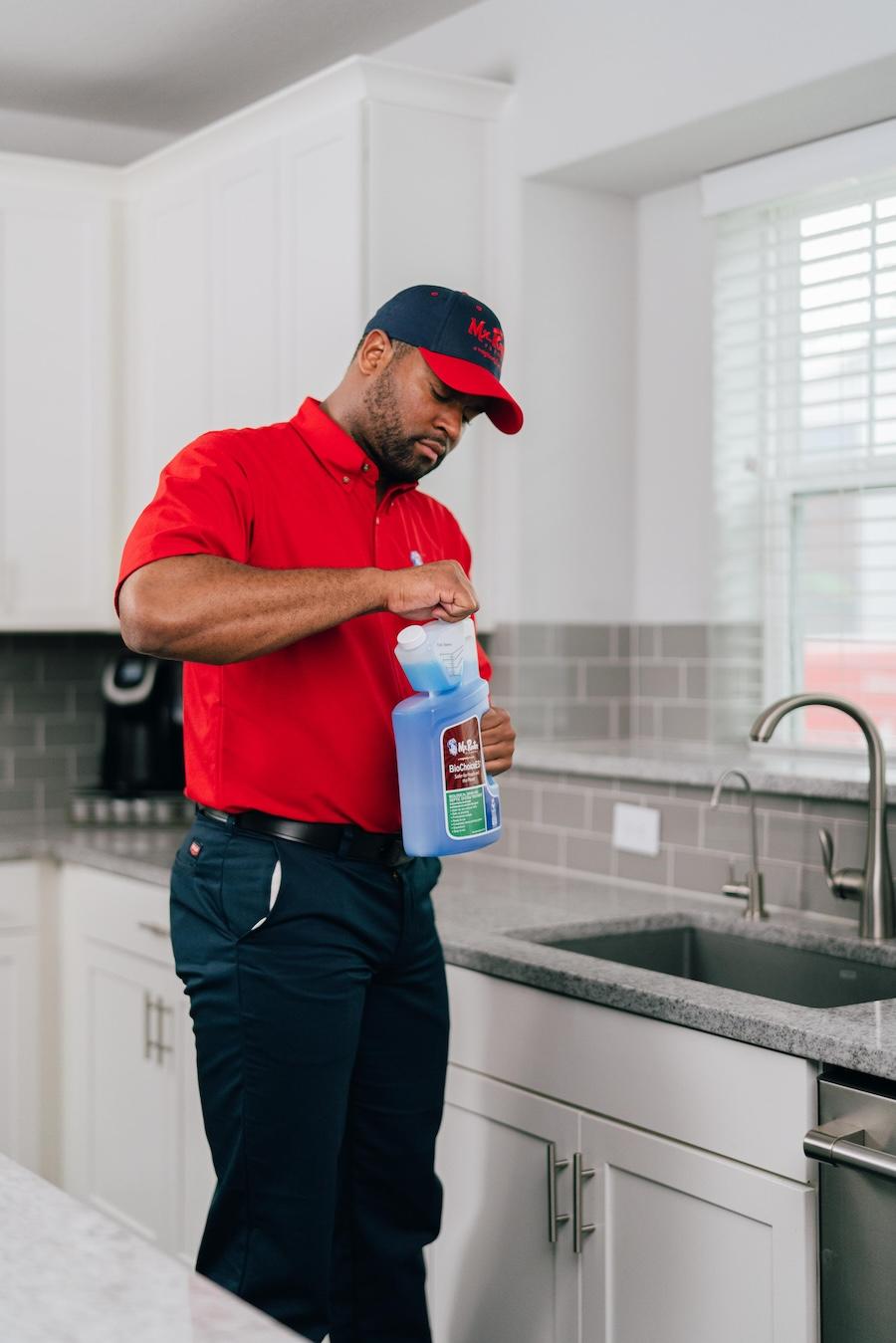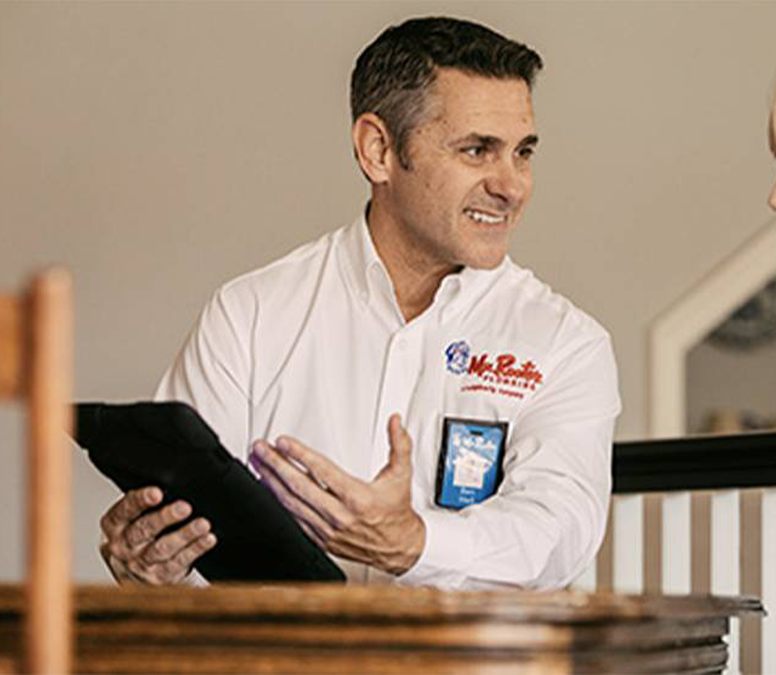Call This Sunday to Get $50 Off Any service over $500
Do You Need a Local Plumber in Waco, TX?
Call us Now to Get $35 OFF.
Call This Sunday to Get $50 Off Any service over $500
Do You Need a Local Plumber in Waco, TX?
Call us Now to Get $35 OFF.

Clogged drains are an inconvenience that every homeowner encounters at some point. When faced with this issue, drain cleaners are often the go-to solution. But how do these products work to clear those stubborn blockages? As a reputable plumbing service, Mr. Rooter Plumbing can help you clear blockages without causing damage associated with artificial cleaners. Let’s explore different types of drain cleaners and how each works to help you make informed decisions when dealing with clogged drains.
Chemical drain cleaners are among the most common solutions for unclogging drains. These products typically contain harsh chemicals like sodium hydroxide (lye) or sulfuric acid. When you use chemical cleaners as a clogged drain line repair solution, the reaction breaks down organic waste into smaller, more manageable pieces. This reaction generates heat, which helps to dissolve the clog faster. However, while these chemicals are effective drain cleaning solutions, improper use can corrode pipes over time, causing costly repairs.
Enzymatic drain cleaners are a more eco-friendly option that uses natural enzymes and bacteria to break down organic material in the pipes. These cleaners introduce beneficial bacteria into the drain, feeding on the clogged material. The enzymes these bacteria produce help digest the organic matter, clearing the blockage slowly but steadily. Enzymatic cleaners are safe for regular use and are ideal for maintaining free-flowing drains. However, they may be less effective on severe clogs, prompting professional intervention like hydro jetting.

Acid-based drain cleaners, typically containing concentrated sulfuric acid, are potent agents to tackle tough clogs. When poured into a drain, the acid reacts violently with the clogging material, rapidly breaking it down. This type of cleaner is effective against grease and hair clogs. However, acid-based cleaners should be handled with extreme caution because of their highly corrosive nature. If you lack the knowledge and expertise to handle these corrosive chemicals, consult a plumbing service to ensure safety.
Alkaline drain cleaners use sodium hydroxide or potassium hydroxide to tackle clogs. These cleaners are particularly effective against grease and fat clogs, as the alkali converts the fats into soap-like substances that can be easily flushed away. Alkaline drain cleaners produce heat during the chemical reaction, which helps break down the clog. While they are less aggressive than acid-based cleaners, they can still pose risks to your system. Before using alkaline cleaners, hire a professional plumber to ensure it is the best option.
Lastly, mechanical drain cleaners, such as drain snakes or augers, can clear clogs. While they may not use chemicals, they physically remove or break the blockage. A drain snake is a long, flexible tool inserted into the drain to dislodge the clog manually. Some advanced versions even come with motorized capabilities for tackling stubborn blockages. Mechanical cleaners are safe for pipes and are often recommended for clogged drain line repair emergencies where chemical cleaners don’t work.
Understanding how different drain cleaners work can help you choose the right solution for your plumbing issue. Whether you opt for a chemical-based cleaner or a mechanical cleaner for a more hands-on approach, knowing the pros and cons of each method will ensure you maintain a healthy system. Contact us at Mr. Rooter Plumbing and schedule a consultation with a trusted plumber. We leverage extensive expertise and specialized equipment to provide exceptional drain cleaning services like hydro jetting to ensure optimum efficiency.
There are two common methods used to clear clogged drains: hydro…
If your pipes have seen better days, you may have noticed frequent leaks, discolored water,…
No matter where you live in Texas, you know how unpredictable the weather can be.…